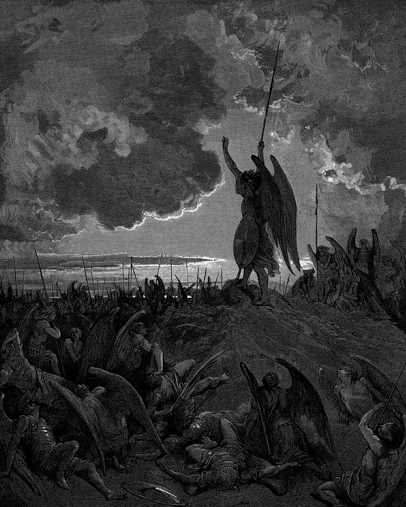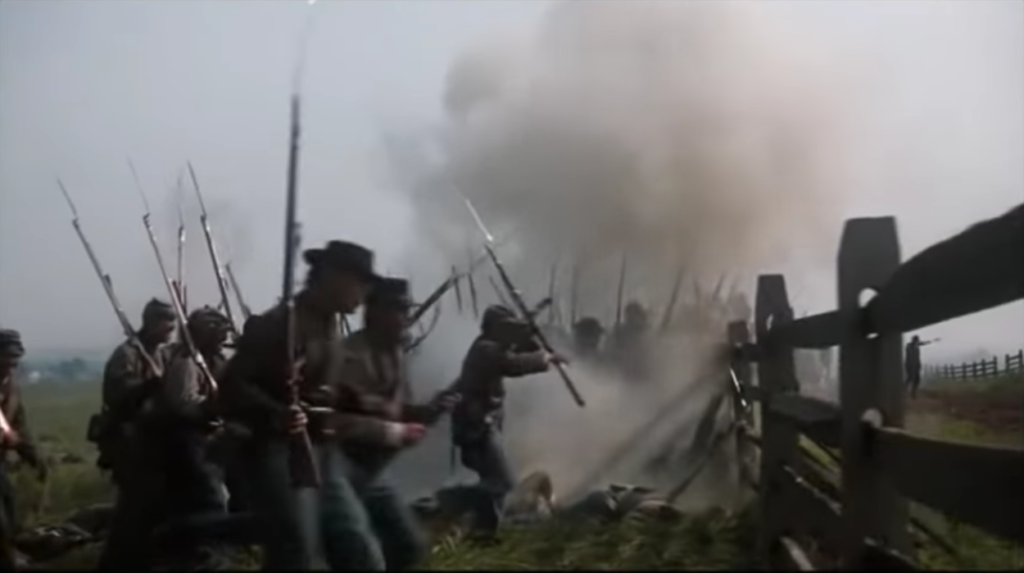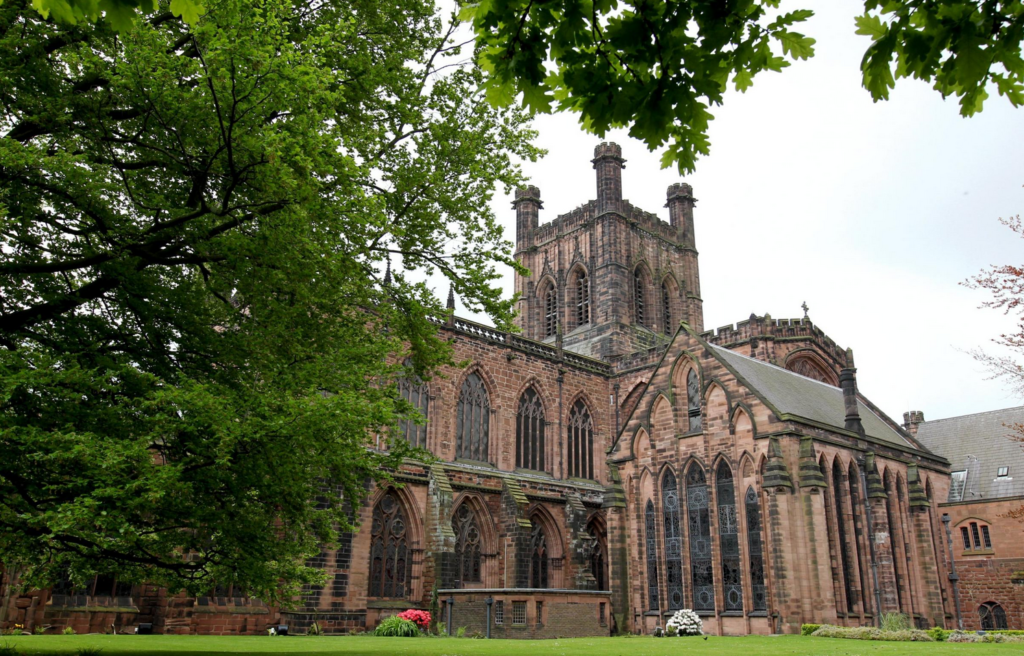Editor’s note: The following is extracted from On Anything, by Hilaire Belloc (published 1910).
The letters of a people reflect its noblest as architecture reflects its most intimate mind and as its religion (if it has a separate or tribal religion) reflects its military capacity or incapacity. The word “noblest” is vague, and nobility must here be defined to mean that steadiness in the soul by which it is able to express a fixed character and individuality of its own. Thus a man contradicts himself from passion or from a variety of experience or from the very ambiguity and limitation of words, but he himself resides in all he says, and when this self is clearly and poisedly expressed it is then that we find him noble.
The poet Milton, according to this conception, has best expressed the nobility of the English mind, and in doing a work quite different from any of his peers has marked a sort of standard from which the ideal of English letters does not depart.
Two things are remarkable with regard to English literature, first that it came late into the field of European culture, and secondly that it has proved extraordinarily diversified. The first point is immaterial to my subject; the second is material to it; for it might be superficially imagined that such bewildering complexity and, as it were, lawless exuberance of method and of matter would never find a pole, nor ever be symbolised by but one aspect of it. Yet Milton has found that pole, and Milton’s work has afforded that symbol.
In any one moment of English literary history you may contrast two wholly different masterpieces from the end of the Fourteenth to the end of the Eighteenth Centuries. After the first third of the Nineteenth, indeed, first-rate work falls into much more commonplace groove, and it is perceptible that the best verse and the best prose written in English are narrowing in their vocabulary, and, in what is far more important, their way of looking at life. The newspapers have levelled the writers down as with a trowel; you have not side by side the coarse and the refined, the amazing and the steadfast, the grotesque and the terrible; but in all those earlier centuries you had side by side manner and thought so varied that a remote posterity will wonder how such a wealth could have arisen upon so small an area of national soil. Piers Plowman and the Canterbury Tales are two worlds, and a third world separate from each is the world of those lovely lyrics which are now so nearly forgotten, but which the populace, spontaneously engendered and sang throughout the close of the Middle Ages. The Sixteenth Century was perhaps less modulated, and flowed, especially towards its end, in one simpler stream, but in the Seventeenth what a growth of variety from the Jacobean translation of the Bible to Swift. The very decade in which Paradise Lost was published corresponded with the first riot of the Restoration.
If we look closely into all this diversity we can find two common qualities which mark out all English work in a particular manner from the work of other nations. To qualities of this kind, which are like colours rather than like measurable things, it is difficult to give a title; I will hazard, however, these two words, “Adventure” and “Mystery.” There is no English work of any period, especially is there no English work of any period later than the middle of the Sixteenth Century, which has not got in it all those emotions which proceed from the love of Adventure. How notable it is, for instance, that Landscape appears and reappears in every diverse form of English verse. Even in Shakespeare you have it now and then as vivid as a little snapshot, and it runs unceasingly through every current of the stream; it glows in Gray’s Elegy, and it is the binding element of In Memoriam. It saves the earlier work of Wordsworth, it permeates the large effect of Byron, and those two poems, which to-day no one reads, Thalaba and The Curse of Kehama, are alive with it. It is the very inspiration of Keats and of Coleridge. Now this hunger for Landscape and this vivid sense of it are but aspects of Adventure; for the men who thus feel and speak are the men who, desiring to travel to unknown places, are in a mood for sudden revelations of sea and land. So a living poet has written —
When all the holy primal part of me
Arises up within me to salute
The glorious vision of the earth and sea
That are the kindred of the destitute….
The note of those four lines is the note of Landscape in English letters, and that note is the best proof and effect of Adventure. If any man is too poor to travel (though I cannot imagine any man so poor), or if he is constrained from travel by the unhappy necessities of a slavish life, he can always escape through the door of English letters. Let such a one read the third and fourth books of Paradise Lost before he falls asleep and he will find next morning that he has gone on a great journey. Milton by his perpetual and ecstatic delight in these visions of the world was the normal and the central example of an English poet.
As when far off at sea a fleet descri’d
Hangs in the clouds….
or, again,
…. Hesperus, that led
The Starry Host, rode brightest ’til the Moon,
Rising in cloudy majesty, at length
Apparent Queen, unveiled….
He everywhere, and in a profusion that is, as it were, rebellious against his strict discipline of words, sees and expresses the picture of this world.
If Landscape be the best test of this quality of adventure in English poets and the Milton as their standard, so the mystic character of English verse appears in them and in him. No period could be so formal as to stifle or even to hide this demand of English writers for Mystery and for emotions communicable only by an art allied to music. The passion is so strong that many ill-acquainted with foreign literature will deny such literature any poetic quality because they do not find in it the unmistakable thrill which the English reader demands of a poet as he demands it of a musician. As Landscape might be taken for the best test of Adventure, so of this appetite for the Mysterious the best measurable test is rhythm. Highly accentuated rhythm and emphasis are the marks and the concomitants of that spirit. As powerful a line as any in the language for suddenly evoking intense feeling by no perceptible artifice is that line in Lycidas —
Smooth-sliding Mincius, crowned with vocal reeds.
I confess I can never read that line but I remember a certain river of twenty years ago, nor does revisiting that stream and seeing it again with my eyes so powerfully recall what once it was to those who loved it as does this deathless line. It seems as though the magical power of the poet escaped the effect of time in a way that the senses cannot, and a man curious in such matters might find the existence of such gifts to be a proof of human immortality. The pace at which Milton rides his verse, the strong constraint within which he binds it, deeply accentuate this power of rhythm and the mystical effect it bears. Now you would say a trumpet, now a chorus of human voices, now a flute, now a single distant song. From the fortieth to the fifty-fifth line of the third book Paradise Lost has all the power and nature of a solemn chant; the large complaint in it is the complaint of an organ, and one may say indeed in this connection that only one thing is lacking in all the tones Milton commanded; he disdained intensity of grief as most artists will disdain intensity of terror. But whereas intensity of terror is no fit subject for man’s pen, and has appealed only to the dirtier of our little modern fellows, intense grief has been from the very beginning thought a just subject for verse.
Τἡλε δ’ ἁπὁ κρατὁς χἑε δἑσματα σιγαλὁεντα
Αμπυκα κεκρὑφαλὁν τ’, ἡδἑ πλεκτἡν ἁναδἑσμην
Κρἡδεμνὁν Θ’, δ ῥἁ οἱ δὡκε χρυσἑη ‘Αφροδἱτη
Ηματι τὩ, ὁτε μιν κορυθαἱολος ἡγἁγεθ’ Εκτωρ
‘Εκ δὁμου ‘Ηετἱωνος, ἑπεἱ πὁρε μυρἱα ἑδνα.
[Greek: Têle d’ apo kratos chee desmata sigaloenta
Ampyka kekryphalon t’, êde plektên anadesmên
Krêdemnon th’, ho rha hoi dôke chryseê Aphroditê
Hêmati tôi, hote min korythaiolos êgageth’ Hektôr
Ek domou Êetiônos, epei pore myria hedna.]
Milton will have none of it. It is the absence of that note which has made so many hesitate before the glorious achievement of Lycidas, and in this passage which I quote, where Milton comes nearest to the cry of sorrow, it is still no more than what I have called it, a solemn chant.
…. Thus with the year
Seasons return; but not to me returns
Day, or the sweet approach of Ev’n or Morn,
Or sign of vernal bloom, or Summer’s Rose,
Or flocks, or herds, or human face divine;
But cloud instead, and ever-during dark
Surrounds me, from the chearful waies of men
Cut off, and, for the Book of knowledge fair,
Presented with a Universal blanc
Of Nature’s works, to mee expung’d and ras’d,
And wisdome at one entrance quite shut out.
So much the rather thou, Celestial light,
Shine inward, and the mind through all her powers
Irradiate; there plant eyes, all mist from thence
Purge and disperse, that I may see and tell
Of things invisible to mortal sight.
There is one other character in Milton wherein he stands not so much for English Letters as for a feature in English nature as a whole, which is a sort of standing apart of the individual. Where this may be good and where evil it is not for a short appreciation to discuss. It is profoundly national and nowhere will you see it more powerfully than in the verse of this man. Of his life we all know it to be true, but I say it appears even in his verse. There is a sort of noli me tangere in it all as though he desired but little friendship and was not broken by one broken love, and contemplated God and the fate of his own soul in a lonely manner; of all the things he drew the thing he could never draw was a collectivity.










